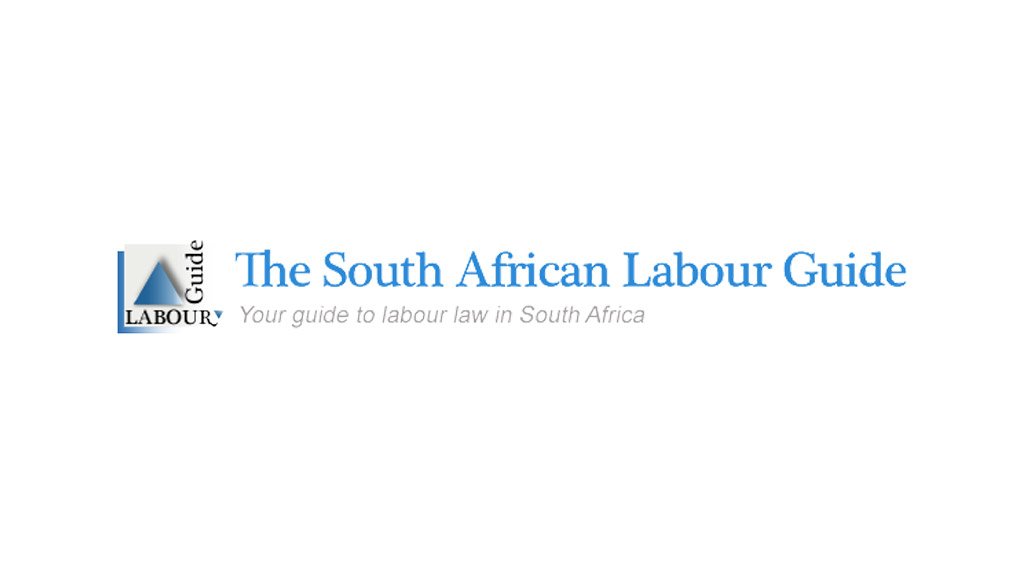Section 6 (1) of the Employment Equity Act 55 of 1998 as amended provides that no person may unfairly discriminate, directly or indirectly, against any employee in any employment policy or practice. Such discrimination includes race, gender, sex, pregnancy, marital status, family responsibility, ethnic, or social origin, colour, sexual orientation, age, disability, religion, HIV status, conscience, belief, political opinion, culture, language, birth or on any other arbitrary ground.
The Act further provides that harassment of an employee is a form of unfair discrimination and is prohibited on any one or a combination of grounds of unfair discrimination listed in subsection 1.
Promotion of Equality and Prevention of Unfair Discrimination Act 4 of 2000 (PEPUDA) defines discrimination as meaning:
“any act or omission, including a policy, law, rule, practice, condition or situation which directly or indirectly:
(a) imposes burdens, obligations or disadvantage on, or
(b) withholds benefits, opportunities or advantages from any person on one or more of the prohibited grounds.”
Section 6 of PEPUDA supra stipulates that neither the State nor any person may unfairly discriminate against any person.
In his book entitled Employment Rights second edition (Juta 2014) at page 214, Professor John Grogan distinguishes between direct and indirect discrimination. He states that direct discrimination occurs when adverse action is taken against people precisely because they possess one of the characteristics listed in section 6 of the Employment Equity Act, or akin thereto; for example, when a woman is overlooked for promotion merely because she is a woman. Direct discrimination, however, occurs when seemingly objective or “neutral” barriers are placed before people which exclude members of particular groups merely because they happen to members of those groups. Indirect discrimination may be either intentional or unintentional.
An employee who has been unfairly discriminated against may refer the dispute in writing to the CCMA within six months after the act or omission that allegedly constitutes unfair discrimination. If the dispute remains unresolved after conciliation, the employee may refer the dispute to the Labour Court for adjudication or an employee may refer the dispute to arbitration if the employee alleges unfair discrimination on the grounds of sexual discrimination.
Who bears the burden of proof?
Section 11 (1) of the Employment Equity Act supra further provides that if unfair discrimination is alleged on a ground listed in section 6 (1), the employer against whom the allegation is made must prove, on a balance of probabilities, that such discrimination:
(a) did not take place as alleged or
(b) is rational and not unfair or is otherwise justifiable.
Subsection 2 provides that if unfair discrimination is alleged on an arbitrary ground, the complainant must prove, on a balance of probabilities, that:
(a) the conduct complained of is not rational;
(b) the conduct complained of amounts to discrimination, and
(c) the discrimination is unfair
Remedies for Unfair Discrimination Disputes
If the CCMA or the Labour Court decides that an employee has been unfairly discriminated against, the Court/CCMA may make any appropriate order/arbitration award, including:
(a) the payment of compensation by the employer to that employee;
(b) the payment of damages by the employer to that employee;
(c) an order/award directing the employer to take steps to prevent the unfair discrimination or similar practice occurring in the future in respect of other employees.
In Ntsabo v Real Security CC (2003) 24 ILJ 2341 (LC), a female employee had resigned and claimed constructive dismissal arising from the complaint that she was sexually harassed and assaulted by another security guard who was her supervisor. The employer failed to take any disciplinary action against the supervisor despite receiving and being aware of the complaint. In the first instance, the Court confirmed the power it had in terms of section 50(2) of the EEA to award (a) compensation and (b) damages in cases of discrimination. In dealing with the facts of the case the Court held that:
“For the purposes of the EEA, failure of the respondent to attend to the problem brings the whole issue within the bounds of discrimination. The nub of the complaint laid with the respondent involved sexual harassment. Its failure to attend to the matter is by definition as envisaged by s6 (3) read with s6 (1) of the EEA, discrimination based on sexual harassment.”
In Department of Correctional Services and Another v Popcru and Others, the Supreme Court of Appeal ruled as automatically unfair the dismissals of male correctional officers who were dismissed for refusing to cut their dreadlocks on the basis that it discriminated against the officers on the grounds of religion, culture and gender. The SCA held as follows at paragraph 25:
“Even assuming otherwise, no evidence was adduced to prove that the respondents’ hair, worn over many years before they were ordered to shave it, detracted in any way from the performance of their duties or rendered them vulnerable to manipulation and corruption. Thus, it was not established that the short hair, not worn in dreadlocks, was an inherent requirement of their jobs. A policy is not justified if it restricts the practice of religious belief – and by necessary extension, a cultural belief that does not affect an employee’s ability to perform his duties, nor jeopardises the safety of the public or other employees, nor causes any undue hardship to the employer in a practical sense.”
Written by Magate Phala, who specialises in Labour Law, and writes in his private capacity. For more information, kindly contact Magate Phala at magatephala@gmail.com
EMAIL THIS ARTICLE SAVE THIS ARTICLE ARTICLE ENQUIRY
To subscribe email subscriptions@creamermedia.co.za or click here
To advertise email advertising@creamermedia.co.za or click here











